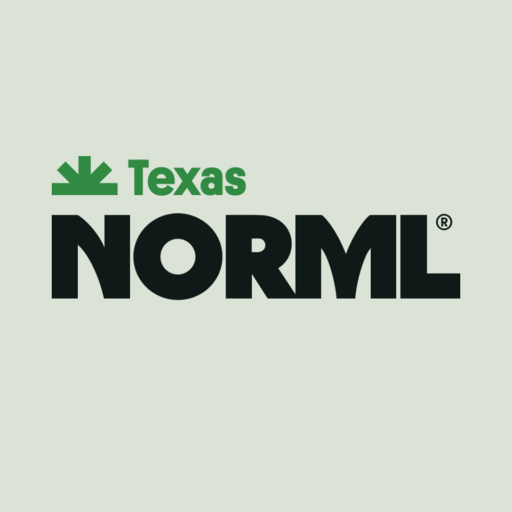Veteran Lobby Day for Medical Cannabis
February 13, 20174th Annual Puff n Putt – Last Call to Pre-Order Event Shirts!
March 6, 2017Texas Compassionate Use Program Regulations Adopted
On February 22nd, 2016, the DPS Committee met and have adopted rules and regulations for the Texas Compassionate Use Program (TCUP). Below is a short summary of some of those regulations. The full set can be found HERE. DPS will accept applications from 2/23-3/23/17. They plan to announce the licence winners on 4/30/17.
Latest set of Regulations From the DPS:
DPS has added a “Production Limit” to the regulations. September 1st the Department of State Health Services will issue a report indicating the number of intractable epilepsy patients in Texas and the most current recommended dosage to treat an individual for 1 year. The DPS will then determine the maximum amount of product necessary to treat 1/3 of the population and the number of plants needed to produce this amount. Each licensee shall not annually produce more than the amount of product described, divided by the number of licensees. There is a provision that if it can be shown that additional plants/product needs to be produced to meet demands, the DPS can raise the limits. DPS will updated these counts annually.
Limits research to that which is necessary for development and production of low-THC cannabis products. The restriction against broader research is intended to limit the potential for violations of federal law.
Application for License:
Proof of ownership and current status in the manner required by the department, including but not limited current:
- Certificate of Existence
- Certificate of Authority from the Texas Office of the Secretary of State
- Certificate of Good Standing from the Texas Comptroller of Public Accounts
Non refundable application fee of $7,356 is required when application is submitted, the licensing fee of $488,520 is required once you are approved for licensure. The renewal fee every 2 years is $318,511. There is a fee of $530 per registrant (managers and employees). (Reduced from the previous $1.3M application fee as the DPS has agreed to not require a DPS State Trooper at each location, instead a special investigator will be hired to visit each location several times per week.)
Proof of commercial general liability insurance coverage against claims of liability for damage to property of third parties and for personal injuries to third parties, including bodily injury, property damage, and product liability, with limits specified. The department estimates commercial liability insurance coverage, for dispensing agents, will likely cost $4,000 to $5,000 per year.
The technical and technological ability to cultivate, process, and/or dispense low-THC cannabis, evidenced by experience in the areas of:
- Cultivation
- Analytical and organic chemistry
- Analytical laboratory methods
- Micro-biology
- Patient education and interaction
The ability to secure the premises, resources, and employees [personnel] necessary to operate as a dispensing organization, evidenced by:
- Descriptions of all properties applicant proposes to utilize to cultivate, process, and dispense low-THC cannabis, including ownership information for the properties
- Descriptions of the methods proposed for the cultivation, processing, and dispensing of low THC cannabis
- Description of the applicant’s proposed testing laboratory, and description of the proposed [cannabis] testing protocols and methods
Department approved acknowledgments executed by the applicant’s directors, managers and employees indicating familiarity with the federal laws governing marijuana and its interstate transportation; in other words, verifying you know that transporting seeds across state lines is illegal. (This was added in place of the DPS regulation requiring growers to divulge the source of their seeds, which could in fact put them in jeopardy of violating the interstate transportation of cannabis laws).
The financial ability to maintain operations for two (2) years from the date of application, evidenced by:
- Applicant’s business organization, and corporate structure if applicable
- List of all owners of any non-corporate applicant, or all shareholders of a corporate applicant
- All individuals and entities with control over the applicant
- Projected two (2) year budget
- Description of available assets sufficient to support the dispensing organization activities
Other Items of Note:
Dispensers must have a fire alarm and fire extinguishing system.
Dispensers are required to have a ventilation system with the capability to detect and signal problematic exhaust levels for the extraction room along with an emergency power backup system.
Representative samples of all processed products must be tested for the levels of tetrahydrocannabinol, cannabidiol, residual solvents, pesticides, fungicides, fertilizers, mold, and heavy metals.
All facilities must be inspected and approved for their use by a local fire code official, or by the state fire marshal or local designee of the state fire marshal, and must meet any required fire, safety, and building code requirements.
Licensees must provide certification by a Texas licensed professional engineer that the extraction system to be used to produce low-THC cannabis products was commercially manufactured, safe for its intended use, and built to codes of recognized and generally accepted good engineering practices.
Upcoming Legislation That Will Impact TCUP:
Senator Menendez’s SB269 and Representative Lucio III’s HB 2107, which are amendments to the current SB339:
- SB269 / HB 2107 would remove the THC/CBD limits
- vastly increase the number of ailments
- replace the “prescription” language with that of “recommend”
- create independent testing facilities
- limit the application fee to $5,000
- and allow patients to grow at least 6 plants for their own use
Take action to support SB 269 / HB 2107 NOW!
Find a list of all the current legislation for the 85R Legislative Session HERE.
The above is an general overview of the adopted regulations. For detailed information, please read the rules, reach out to MedCan Foundation or Texas Cannabis Industry Association.
